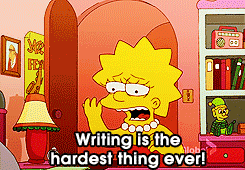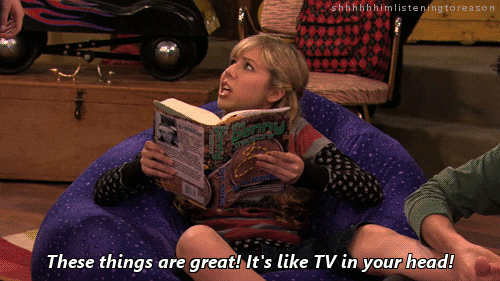How to make English Class Interesting
English Class can be some people's dream class. They are asked to read and write more and delve deeper into the meaning behind the words. For many people though, English class is a version of torture. The flowery and difficult to decipher language in poetry and stories, the strange stories that mean nothing to you yet are called classics, and so on. If you are someone who hates English Class, these ideas below can help you not only make it through, but hopefully make it more bearable and interesting.

1. Change your Attitude:
- If you’re reading this article, you’re already starting off well. You want to make this better. Even if you know English is not your favorite subject, keeping a negative attitude about it will only make you more miserable. Changing your attitude can be one of the hardest things to do, but it is one of the most important if you want to enjoy any class, not just English. It sounds cliché, but if you are unwilling to learn, then you probably won’t learn anything.
- English is not just a class where they want to force you to read seemingly out of date literature to torture you. Critical thinking about the writing, grammar, and vocabulary will all serve you will throughout the rest of your life.

2. Read the assignment
- We live in the age of the internet, when we want short, to the point, and bullet pointed, if possible. Many people's first instinct is to just say, "Too long, didn't read," but these assignments are not a waste of time, and you are usually assigned to read them for a good reason. They provide insight into humanity’s past and what was popular for people in times in the past. They are a way to improve critical thinking and analysis. They create opportunities to imagine and explore worlds different from our own.
- If you cannot read the entire assignment for whatever reason, at least read pieces of it. Read fragments or get through a whole chapter. I encourage reading the entire assignment, but even as someone who loves to read, I know that there are things that get in the way. Your pile of homework is mounting, and those 50 pages you need to read by tomorrow were just not a priority. Try to read at least some of it before class. The more you read, the easier future tests and papers on the subject will be.

3. Ask for Help
- With a few exceptions (there are always bad teachers out there), most teachers and more than happy to offer their help to you. Some teachers become cynics because their students don’t care and don’t want to care, but most teachers are willing to help you if you are willing to learn.
- If your teacher is unavailable or does not offer the help that you need, you can try a tutor. Some schools have tutoring centers for cheap or free, and there are many local places or sites online such as Wyzant that can help as well.
- If teachers or tutors don’t work, the internet is there for you. Be warned though. The internet has a lot of bad advice out there, so take it all (yes even this article) with a grain of salt. That is why it is important to read the assignment even if you use the internet for help. A well-known site for help is Sparknotes, especially useful for older literature that can be harder to understand compared to the way we write and speak today. Use the internet as a tool to help, not a way of skipping over the reading material all together.

4. Try different methods of learning:
- This goes with asking for help. Talk to your teacher about other ways that you may be able to approach the work if the current method is proving difficult.
- If you have dyslexia or simply find the written word unpleasant, try to find an audiobook version of the story. You can listen to them as you read along, something that can be especially helpful if your teacher requires you to make notes on the pages of the books, or you can be doing your homework as you lay in bed staring at the ceiling with headphones in your ears (just be careful not to fall asleep). Many classic pieces of literature even have free audiobooks available on different platforms, so see if you can find one to listen to as you read along.
- For some classic pieces of literature, there are also comic books that tell the story through pictures, not just words. Again, I would still focus primarily on the original material, especially since these can sometimes differ from the source, but these are a fantastic way to get a new, artful angle on older works. Some of these are available free as well.
- If you are writing a paper but struggling with actually writing it, try talking to someone about the ideas that you have. Sometimes working through it verbally can make it less intimidating and help the ideas begin to flow.
5. Participate in class:
- This one can be difficult, especially for those who don’t participate in any class, even if they enjoy it. It is easy to lean back and zone out while discussing a book or poem, but this can make the class much more difficult and frustrating in the long run. If you have a question or an interesting point, try to bring it up. Odds are that at least one other person in the room had the same question. When you bring your own point of view into the discussion, it can make it more interesting for you and the rest of the class.
- Even if you don’t actively raise your hand or partake in discussions, try to engage your own brain and think about the discussion of the book or subject. It is not necessary to put yourself out in the open in front of the class, though it can help for some, but staying engaged helps the class feel less like a waste of time and more like an interesting discussion.

6. Find something you enjoy even in what you hate:
- These ideas above can all be helpful, but when you are reading or writing something that you despise for whatever reason, it can still be hard to put any effort into it. Usually, the material that you read is called a classic for a reason. They are usually well written, influential on the world or your country, or important for some other reason. However, just because it is a classic piece of literature or poetry doesn’t mean that everyone is going to enjoy it. Some people hate Shakespeare and cannot understand him no matter how hard they try. Others despise the absurdity and exaggerated qualities of Beowulf. Some people find Walt Whitman’s “Leaves of Grass” so long winded that they can barely get through a quarter of it.
- If you find yourself in this predicament, you are not alone. Even people who love English and love English class still usually have that one author or one time period that they absolutely hate. Try to find something to make it at least less horrible. Can you enjoy the humor and baudy jokes that Shakespeare has to offer? Are there useful words in Beowulf that you can integrate into your own vocabulary even if you don’t like the story? It is enjoyable to read “Leaves of Grass” out loud, focusing on the sound of the poem instead of the meaning of the words? Try to find something interesting or useful even in the works that you hate. Sometimes finding one aspect that isn’t so horrible can make it bearable to get through a difficult part of class.

These are not foolproof methods to make English class amazing or perfect. English class can be difficult, even for those of us who love it. A bad teacher can make a class terrible no matter what you do, and there will always be difficult assignments. If you try all of these things and still end up hating the class, try not to hate all that English has to offer. Keep working to find something good or useful from the subject. Read your own choice of books in your own time or write for fun. Even if English never becomes a subject that you enjoy, do your best to keep working at it. Not only will it be helpful in the future, you may end up finding a book or poem or other part of it that you love that can make it all worthwhile.








